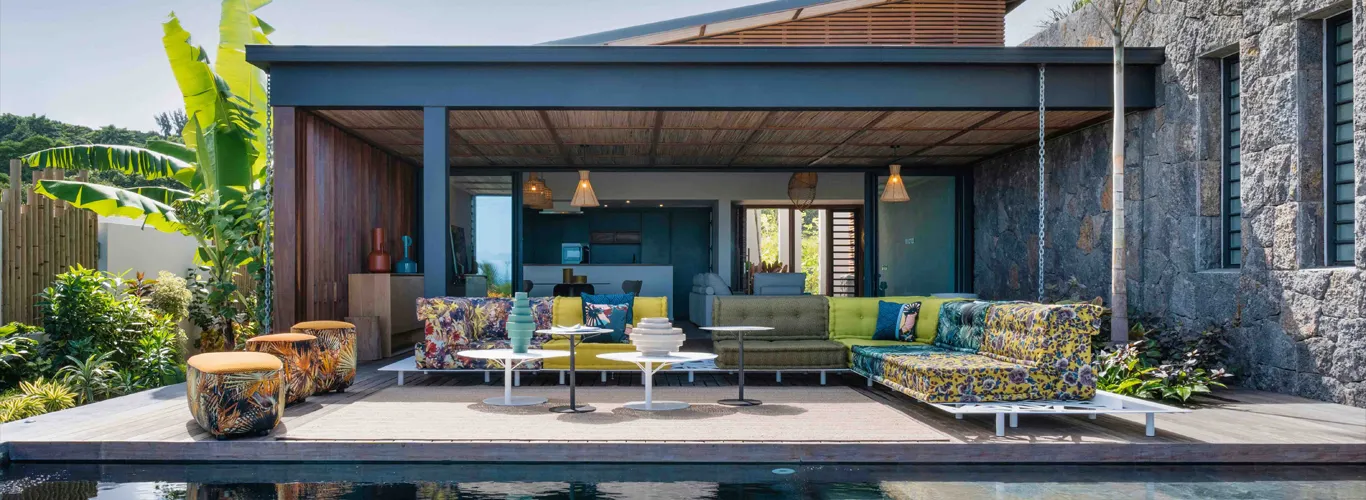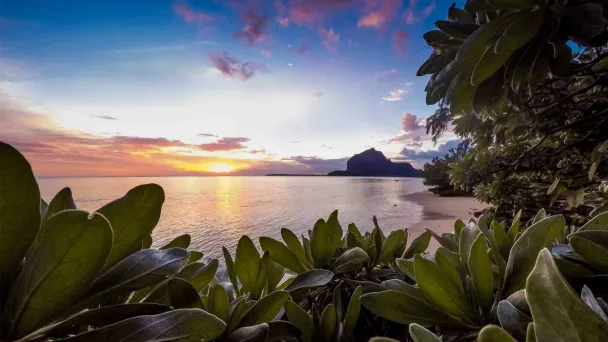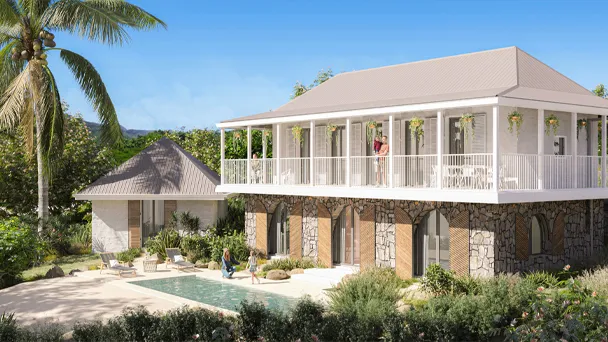Investing in property is a goal for many people. However, the ensuing tax burden, the many costs involved and the difficulty of finding the perfect property can put the brakes on many an investor.
In a tense economic climate, with inflation raging and real estate at half-mast, many people are giving up on their property investment plans.
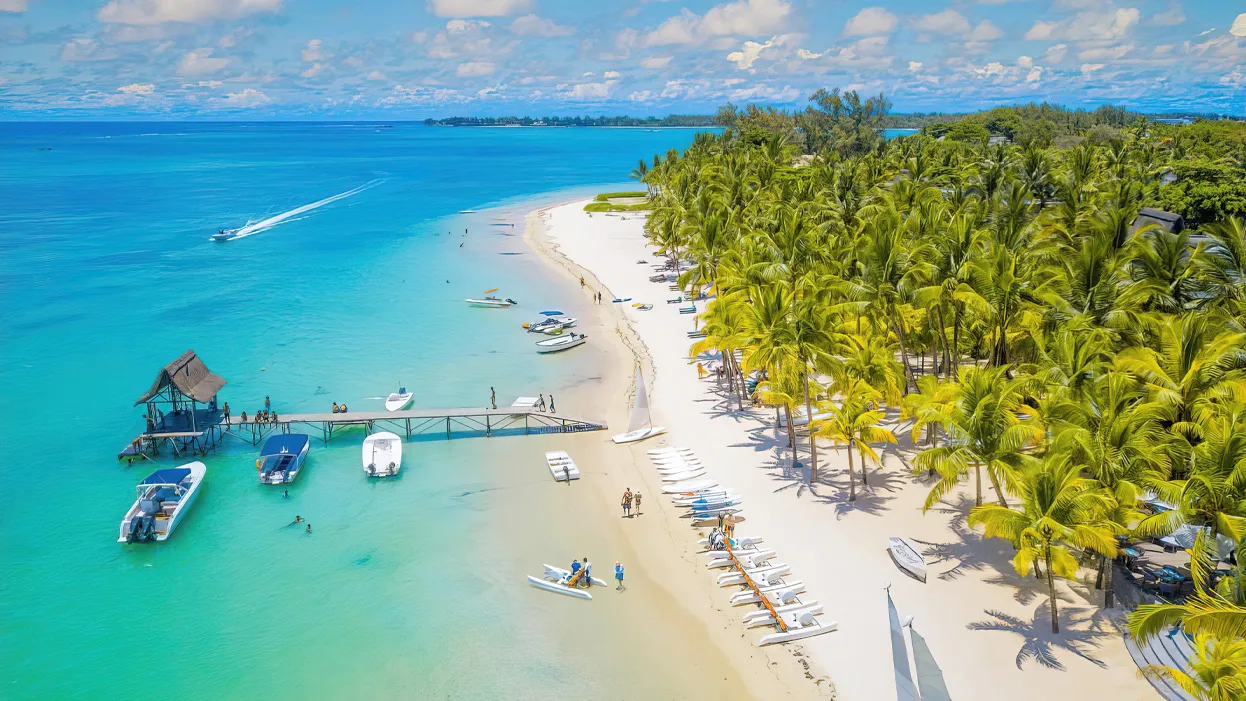
But what if all you had to do was push back the frontiers to find satisfaction?
Just 9,500 km from London and Berlin or 5,000 from Dubai, Mauritius is a veritable Eldorado. Renowned for its tourist attractions and postcard-perfect scenery, the island paradise - as it's nicknamed - also appeals for its economic and tax advantages. These are the key factors for an ideal and profitable real estate investment.
Invest in Mauritius for attractive tax benefits
In addition to its idyllic setting, gentle serenity and varied activities, Mauritius offers particularly attractive tax advantages for any foreign investor wishing to acquire property on the island, either to live in or to rent out:
- No double taxation: thanks to tax treaties signed between many countries and Mauritius, foreign investors purchasing property in Mauritius are taxed on their property income only once, in Mauritius. There is no double taxation in their country of origin.
- No property tax.
- No property tax.
- No inheritance tax to pay.
- No social security contributions (CSG/CRDS).
- A single Flat Tax of 15% applied to personal and property income. Please note: from July 1, 2023, the single rate of 15% will be replaced by a scale based on the amount of taxable income. The tax rate varies between 0 and a maximum of 20%.
- No tax on dividends.
- No capital gains tax on resale.
- No wealth tax.
The different regimes for investing in Mauritius
With a view to boosting economic growth and encouraging foreign real estate investment, Mauritius has set up a number of specific schemes. So, as a foreign investor, you can invest via one of the following regimes, depending on your needs and objectives:
PDS
The PDS (Property Development Scheme) has replaced the IRS (Integrated Resort Scheme) and RES (Real Estate Scheme) schemes since 2016. This scheme enables you to acquire luxury villas or apartments within residential properties.
Villas are generally equipped with top-of-the-range facilities reserved for all residents (sports ground, spa, children's playground...), and offer shared services (cleaning, concierge service, security...).
This scheme encourages the development and purchase of high-end residential villas in Mauritius by foreign investors. This is the scheme most frequently used by foreign investors to purchase property in Mauritius.
Good to know: if the price of the property exceeds US$375,000 (or its equivalent in another currency) via the PSD scheme, you, your spouse and members of your tax household automatically obtain a permanent residence permit.This permit is valid for as long as you own property on the island, and is passed on from owner to owner.You are also considered a Mauritian resident for tax purposes if you live in Mauritius for more than 183 days a year.
Special case: if you are purchasing property through a company with several investors, only one of you can obtain a residence permit. However, a transfer of the permit is possible, provided you inform the relevant authorities.
R+2
Also introduced in 2016, the R+2 scheme allows any foreign investor to buy a freehold apartment in a building with at least two floors. The price of the property must be at least MUR 6,000,000 (or its equivalent in convertible foreign currency).
Unlike the PDS scheme, the R+2 scheme does not give access to permanent residence or tax residency, but it is possible to obtain a 6-month residence permit, provided the price of the property exceeds US$375,000. This scheme also gives the right to rent out the property purchased, in order to receive rental income that is not taxable in the country of origin.
SCS
The SCS (Smart City Scheme) was launched in 2015 by the Mauritian government. The scheme aims to create new environmentally-friendly urban spaces, combining residential, office, medical, commercial, entertainment, sports and education. Foreign investors can acquire villas, houses, apartments, duplexes and plots of land within built-up residential properties, as well as office space. A residence permit is issued if the price of the property exceeds US$375,000, entitling you to domicile in Mauritius for tax purposes, provided you reside here for more than 183 days a year.
Other advantages of investing in Mauritius
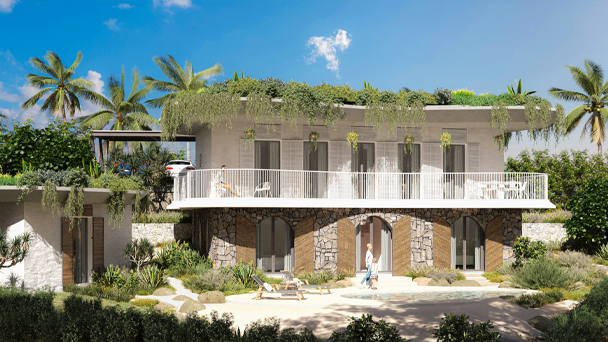
In addition to its particularly advantageous tax system, Mauritius offers an ideal living environment, much sought-after by foreign investors.
Its lagoons, white sandy beaches and sublime landscapes, as well as its tropical climate and relaxed lifestyle, leave no one indifferent.
Economically speaking, this island state has grown steadily over the years. In fact, the Mauritian economy is considered one of the best in Africa.
There are numerous advantages for foreign investors alike:
- Growing seasonal rental demand.
- A return on investment of between 4% and 10%.
- Upscale, modern, quality properties, ideal for living in or renting out.
- A stable social and political context since 1968.
- A safe and secure atmosphere.
- A judicial system that is independent of political power and offers the same guarantees to foreign investors as to Mauritians.
- A dynamic financial sector.
- Optimal protection for investors thanks to the signing of investment protection agreements.
- A high-performance healthcare system.
- Renowned international schools.
- A multilingual population: while English is the official language, French is widely spoken, as is Mauritian Creole.
What is the procedure for investing in Mauritius?
To make a real estate investment in Mauritius a reality, you need to follow a certain procedure:
Application for EDB approval
First of all, you need to apply in writing to the Economic Development Board (EDB) in Mauritius, along with a number of supporting documents, such as a copy of your passport or a letter of recommendation from your bank.
Signing the CRP contract
Once you've obtained the EDB's approval, you'll need to sign the preliminary reservation contract (CRP). This preliminary contract enables you to block the reservation of the property. Once the CRP has been signed, you have 15 days in which to pay 10% of the property price, corresponding to the security deposit, into an escrow account opened by a notary in your name. In the case of a VEFA sale, this percentage can be as high as 25% of the purchase price. In this case, you must pay the deposit when you sign the deed of sale. If the deed of sale is signed between 1 and 2 years after the signing of the preliminary reservation contract, the deposit cannot exceed 2%. After two years, no deposit is required.
Signing the deed of sale
Once the reservation is confirmed, you can proceed to the signing of the deed of sale in the presence of a Mauritian notary. During this meeting, you will also pay the remaining balance (90%). In the case of a VEFA sale, these payments are made according to the progress of work, as defined in the reservation contract.
Notary fees
As with a property purchase in France, a property purchase in Mauritius is subject to notary fees, which must be paid by the investor. These amount to 1.15% (incl. VAT) of the purchase price of the property, in line with the real estate schemes set up for foreign investors.
Land Transfer Tax
Finally, you will be required to pay a land transfer tax amounting to 5% of the property price. This tax must be paid by both the buyer/investor and the seller/developer.
Where to invest in Mauritius?
Mauritius offers a wide and varied range of real estate: villas, apartments, houses, duplexes, bungalows... Some real estate developments favor luxury villas, others simpler but equally comfortable apartments. Depending on your objective - whether to invest in Mauritius as a rental property or as a residence - some parts of the island are more suitable than others: seaside, direct access to the city, natural surroundings, proximity to certain amenities and shops, etc.
Here are some of Mauritius's prime investment locations:
- Grand Baie: a lively tourist village with superb beaches, numerous restaurants and shops. It's an ideal area for investors wishing to acquire expatriate residences or vacation homes.
- Port-Louis: the dynamic capital of Mauritius, known for its traditional colonial architecture. If you're looking to invest in urban real estate, office space or any other commercial property, this is the place to be.
- Flic en Flac: the island's liveliest spot, combining party spots, beautiful beaches and spas. If your investment objective is hotel or tourism-related, this is the perfect location.
- Trou aux Biches: an attractive destination for both tourism (turquoise sea, heavenly beaches) and real estate investment.
- Belle Mare: located to the east of the island, Belle Mare is the ultimate nature and eco-responsible destination. It boasts luxury properties with swimming pools and appeals to eco-responsible investors.
- Tamarin: in the west of the island, this village has a quiet charm, with mountains and beaches.It's an ideal place to invest in Mauritius, especially if you're looking for high-end residential properties or vacation homes.
- The South - Baie du Cap and Bel Ombre: nestled in the south of the island, this soothing location is ideal for luxury or eco-tourism property investments.It's a paradise for buyers looking for authenticity, and for water sports, hiking and mountain biking enthusiasts.
Anbalaba, a prime location for foreign investors
Bordered by the island's most popular mountains and kitesurfing spots, Domaine d'Anbalaba is located in Baie du Cap.
Its prime location, in the heart of a fishing village, gives it an undeniable charm. With its peaceful, timeless atmosphere, lush surrounding vegetation, sublime nearby beaches and comprehensive real estate program, Domaine d'Anbalaba is a dream location for any foreign investor favoring authenticity and sustainable development/tourism.
By investing in Domaine d'Anbalaba, you'll benefit from a comprehensive rental management service and a high rental yield.
